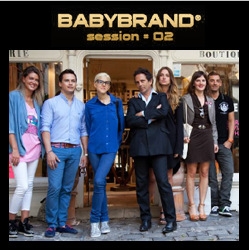
Richness of French and European brands / In crisis time, brands invest in their development: plants, distribution networks, research, e-commerce, as they are anticipating the restarting of consumption in rich countries and its taking off in emerging countries. Brands always emphasize on their workers and their plants in order to value the origin and quality of their products.
In 28 years, we went from “Merde in France” (Gaumont Music), a song from Jacques Dutronc to Made in France which now ranks first on the top fifty trends of our time.
Invisible until then, we are now witnessing the starization and the staging, behind glass windows – large screens, of professionals in their workplace: from its restaurant table, the customer can see the cook bestir himself on his order. It is now before our very eyes that automobile specialists repair our car which was produced abroad. In a country which has lost a substantial part of its industrial sector the value of handmade work realized in our presence has become the guarantee for a high quality work, a work that we will not see going abroad :-(
We are being compelled to produce local, buy local, eat local, spend local, and entertain local. To live in a grey-powered neutral world.
It's the end of the bling-bling and the beginning of soft-bling. Brands and politicians now play on the new rich/poor relation.
A new poorly expressed speech which may sound populist. Eco-conscious, the Babybrand trend, which cannot manufacture its low levels of production in Asia is at the origin of the renaissance of the Made in France and Made in Paris. Encouraged by the government, the press, and by the public opinion, a Babybrand will help create local jobs. The district of the Sentier as well as the suburbs will regain their position of Made in Paris manufacturing hubs for fashion and new technologies.
3D printers, with their technology and their now affordable prices will first allow the public to product locally spare parts (glasses side arms, small car parts, etc.) for its personal use. But in the near future, they will bring about a true industrial revolution. Networks of self-replicant tool-printers connected through an open source technology will allow the individuals as well as the firms to create products and exchange their skills. The machines will then also pay payroll taxes, like employees, which will make them gain extra soul.


